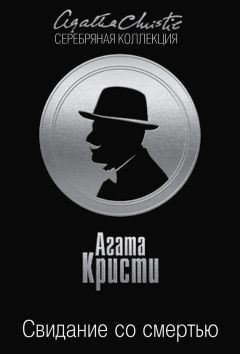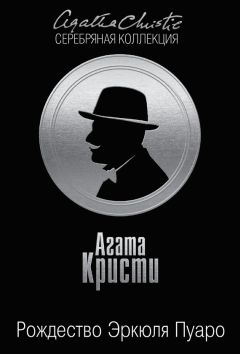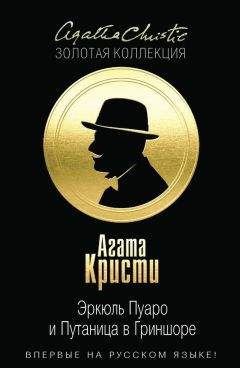Arthur Conan Doyle - Английский язык с Шерлоком Холмсом. Собака Баскервилей
We stood with bitter hearts on either side of the mangled body (мы стояли с горечью в сердцах по обе стороны от искалеченного тела), overwhelmed by this sudden and irrevocable disaster (потрясенные внезапным и непоправимым несчастьем) which had brought all our long and weary labours (которое привело все наши длительные и утомительные труды = усилия) to so piteous an end (к такому достойному сожаления концу; pity — жалость). Then, as the moon rose (потом, когда взошла луна), we climbed to the top of the rocks (мы поднялись на вершину скалы) over which our poor friend had fallen (с которой упал наш бедный друг), and from the summit we gazed out over the shadowy moor (и сверху пристально оглядели мрачные болота), half silver and half gloom (наполовину /покрытые/ серебряным /светом/, наполовину мраком). Far away, miles off, in the direction of Grimpen (вдалеке, в /нескольких/ милях от /нас/ в направлении Гримпена), a single steady yellow light was shining (равномерно горел одинокий желтый огонек). It could only come from the lonely abode of the Stapletons (он мог гореть только в уединенном доме Стэплтонов). With a bitter curse I shook my fist at it as I gazed (с «сильными» проклятиями я потряс кулаком, когда посмотрел в ту сторону; to shake).
overwhelm [ˌǝuvǝˈwelm], fallen [ˈfɔ:l(ǝ)n], shining [ˈʃaɪnɪŋ]
We stood with bitter hearts on either side of the mangled body, overwhelmed by this sudden and irrevocable disaster which had brought all our long and weary labours to so piteous an end. Then, as the moon rose, we climbed to the top of the rocks over which our poor friend had fallen, and from the summit we gazed out over the shadowy moor, half silver and half gloom. Far away, miles off, in the direction of Grimpen, a single steady yellow light was shining. It could only come from the lonely abode of the Stapletons. With a bitter curse I shook my fist at it as I gazed.
"Why should we not seize him at once (почему бы нам не схватить его сразу)?"
"Our case is not complete (наше дело не завершено = нам не хватает доказательств). The fellow is wary and cunning to the last degree (этот человек осторожен и хитер до последней степени). It is not what we know (/главное/ — не то, что мы знаем), but what we can prove (а что мы можем доказать). If we make one false move (если мы сделаем одно неверное движение) the villain may escape us yet (злодей может еще и сбежать от нас)."
"What can we do (что мы можем сделать)?"
"There will be plenty for us to do to-morrow (нам много нужно будет сделать завтра). To-night we can only perform the last offices to our poor friend (сегодня ночью мы можем только совершить над нашим другом погребальный обряд; to perform the last offices — совершать погребальный обряд: «последние службы/обряды»)."
Together we made our way down the precipitous slope (вместе мы спустились вниз по крутому склону; to make one's way — продвигаться, направляться) and approached the body (и приблизились к телу), black and clear against the silvered stones (темному и четкому на фоне серебрившихся камней). The agony of those contorted limbs (/при виде/ этих в мучениях скрюченных членов) struck me with a spasm of pain (у меня от горя перехватило дыхание; to strike — ударять; поражать; pain — боль; горе) and blurred my eyes with tears (и глаза наполнились: «затуманились» слезами).
"We must send for help, Holmes (мы должны послать за помощью, Холмс)! We cannot carry him all the way to the Hall (мы не сможем всю дорогу нести его). Good heavens, are you mad (Господи Боже, вы с ума сошли)?"
He had uttered a cry and bent over the body (он издал вопль и склонился над телом; to bend). Now he was dancing and laughing and wringing my hand (теперь он танцевал, смеялся и жал мне руку). Could this be my stern, self-contained friend (мог это быть мой строгий, сдержанный друг)? These were hidden fires, indeed (да, вот какие /в нем/ скрывались страсти; fire — огонь; страсть, неистовость; indeed — в самом деле, действительно; выражание сомнения, удивления и т. п.)!
"A beard! A beard! The man has a beard (борода, у этого человека борода)!"
"A beard?"
"It is not the Baronet (это не баронет) — it is — why, it is my neighbour, the convict (это — Боже мой — это мой сосед, каторжник)!"
With feverish haste we had turned the body over (с лихорадочной поспешностью мы перевернули тело; fever — лихорадка), and that dripping beard (и эта пропитанная /кровью/ борода; dripping — капающий; мокрый, промокший) was pointing up to the cold, clear moon (была направлена /теперь/ на холодную, ясную луну = торчала вверх/была задрана к луне). There could be no doubt about the beetling forehead (не могло быть сомнений насчет этого низкого лба; to beetle — нависать, выдаваться), the sunken animal eyes (/и/ глубоко запавших звериных глаз; sunken — затонувший; впалый). It was, indeed, the same face (несомненно, это было то лицо) which had glared upon me in the light of the candle from over the rock (которое смотрело на меня при свете /стоящей/ на скале свечи) — the face of Selden, the criminal (лицо Сэлдэна, преступника).
prove [pru:v], precipitous [prɪˈsɪpɪtǝs], wring [rɪŋ]
"Why should we not seize him at once?"
"Our case is not complete. The fellow is wary and cunning to the last degree. It is not what we know, but what we can prove. If we make one false move the villain may escape us yet."
"What can we do?"
"There will be plenty for us to do to-morrow. To-night we can only perform the last offices to our poor friend."
Together we made our way down the precipitous slope and approached the body, black and clear against the silvered stones. The agony of those contorted limbs struck me with a spasm of pain and blurred my eyes with tears.
"We must send for help, Holmes! We cannot carry him all the way to the Hall. Good heavens, are you mad?"
He had uttered a cry and bent over the body. Now he was dancing and laughing and wringing my hand. Could this be my stern, self-contained friend? These were hidden fires, indeed!
"A beard! A beard! The man has a beard!"
"A beard?"
"It is not the Baronet — it is — why, it is my neighbour, the convict!"
With feverish haste we had turned the body over, and that dripping beard was pointing up to the cold, clear moon. There could be no doubt about the beetling forehead, the sunken animal eyes. It was, indeed, the same face which had glared upon me in the light of the candle from over the rock — the face of Selden, the criminal.
Then in an instant it was all clear to me (потом через мгновенье мне все стало ясно). I remembered how the Baronet had told me (я вспомнил, как баронет говорил мне) that he had handed his old wardrobe to Barrymore (что он отдал свой старый гардероб Бэрримору). Barrymore had passed it on in order to help Selden in his escape (Бэрримор передал его Сэлдэну, чтобы помочь скрыться; escape — побег, бегство). Boots, shirt, cap — it was all Sir Henry's (ботинки, рубашка, кепка, — все это было сэра Генри). The tragedy was still black enough (трагедия была достаточно драматичной: «мрачной»), but this man had at least deserved death (но этот человек и так заслужил смерть; at least — по крайней мере) by the laws of his country (по законам нашей страны). I told Holmes how the matter stood (я рассказал Холмсу, как обстоит дело), my heart bubbling over with thankfulness and joy (мое сердце /при этом/ переполнялось благодарностью и радостью; to bubble over — переполняться, кипеть /от эмоций/; bubble — пузырек /в воде или другой жидкости, наполненный воздухом или газом/).
"Then the clothes have been the poor fellow's death (значит, одежда стала причиной смерти бедняги)," said he. "It is clear enough (теперь совершенно ясно) that the hound has been laid on from some article of Sir Henry's (что собаке дали /понюхать/ что-то из вещей сэра Генри; to lay — класть, положить; article — статья; предмет, вещь) — the boot which was abstracted in the hotel, in all probability (ботинок, который был украден в гостинице, по всей вероятности; to abstract — удалять; украсть) — and so ran this man down (и таким образом /она/ настигла этого человека; to run down — настигать, догонять). There is one very singular thing, however (однако, есть одна примечательная вещь): How came Selden, in the darkness, to know (как Сэлдэн в темноте мог узнать) that the hound was on his trail (что собака преследует его; to be on smb.’s trail — напасть на след)?"
"He heard him (он услышал ее)."
wardrobe [ˈwɔ:drǝub], escape [ɪsˈkeɪp], article [ˈɑ:tɪkl]
Then in an instant it was all clear to me. I remembered how the Baronet had told me that he had handed his old wardrobe to Barrymore. Barrymore had passed it on in order to help Selden in his escape. Boots, shirt, cap — it was all Sir Henry's. The tragedy was still black enough, but this man had at least deserved death by the laws of his country. I told Holmes how the matter stood, my heart bubbling over with thankfulness and joy.
"Then the clothes have been the poor fellow's death," said he. "It is clear enough that the hound has been laid on from some article of Sir Henry's — the boot which was abstracted in the hotel, in all probability — and so ran this man down. There is one very singular thing, however: How came Selden, in the darkness, to know that the hound was on his trail?"
"He heard him."
"To hear a hound upon the moor (/если бы он/ услышал, как /какая-то/ собака, /бежит/ по болоту) would not work a hard man like this convict (/то это/ не довело бы /такого/ видавшего виды человека, как этот каторжник; to work — работать; доводить до /какого-либо состояния/; hard man — жесткий, крутой человек) into such a paroxysm of terror (до такого ужаса; paroxysm — приступ) that he would risk recapture (что он рискнул бы быть пойманным; recapture — взятие обратно /чего-либо/; поимка /кого-либо/) by screaming wildly for help (дико крича о помощи). By his cries (/судя/ по его крикам) he must have run a long way (он должен был пробежать большое: «длинное» расстояние) after he knew the animal was on his track (после того, как понял, что зверь его преследует). How did he know (откуда он знал)?"
"A greater mystery to me is why this hound (/еще/ бóльшая загадка для меня), presuming that all our conjectures are correct (допуская, что наши предположения верны) ——"
"I presume nothing (я не допускаю ничего)."
"Well, then, why this hound should be loose to-night (так вот, почему эту собаку отвязали сегодня вечером; loose — свободный; спущенный с цепи). I suppose that it does not always run loose upon the moor (полагаю, она не всегда свободно бегает по болотам). Stapleton would not let it go (Стэплтон не выпустил бы ее; to let go — выпускать, освобождать) unless he had reason to think (если бы не имел оснований думать) that Sir Henry would be there (что сэр Генри будет здесь)."




